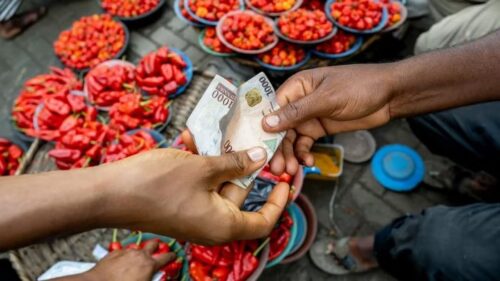The relative stability of the naira in December 2024 and the introduction of a 150-day import duty waiver on essential staples by the federal government have contributed to a notable steady decrease in imported food inflation, reaching its lowest level since September 2019.
Although headline inflation is still rising, for the fourth consecutive time to 34.8% in December, the rate of increase has moderated for the second month in a row. Analysts attribute this to the Central Bank of Nigeria’s (CBN) sustained tight monetary policy.

Imported food inflation slowed to 41.29% yearly in December, down from 42.29% in November. According to analysts at FBNQuest Capital Research, this marks the first decline in imported food inflation in over five years. Factors contributing to this deceleration include reduced naira volatility, lower incentives to import due to higher foreign exchange (FX) costs and the federal government’s import duty waiver on key food items. The naira’s stability has been increased by enhanced market transparency, driven by the Electronic Foreign Exchange Matching System (EFEMS), launched in December 2023.
While imported food prices are easing, overall food inflation is also showing signs of decline. Data from the National Bureau of Statistics (NBS) revealed a marginal drop in food inflation to 39.84% in December, compared to 39.93% in November. Declines in the prices of bread, cereals, soft drinks, local beer, potatoes, yams, tobacco, and other tubers were key contributors to this reduction. The NBS is on track to complete the rebasing of Nigeria’s Consumer Price Index (CPI) by the end of January 2025. This fix will introduce a new base year of 2024, replacing the previous base year of 2009, and will reflect changes in the composition of goods and services in the inflation basket.
Research and investment firm CardinalStone projects a deceleration in inflation for January 2025. Analysts anticipate a decline driven by a high base effect from January 2024, stabilizing naira exchange rates and lower petrol prices. The stability of the naira is supported by factors such as huge foreign exchange reserves, increased access to dollar-denominated debt, rising portfolio inflows, and the efficiency of the EFEMS. These dynamics are expected to moderate inflation to an estimated 34.52% in January 2025.



